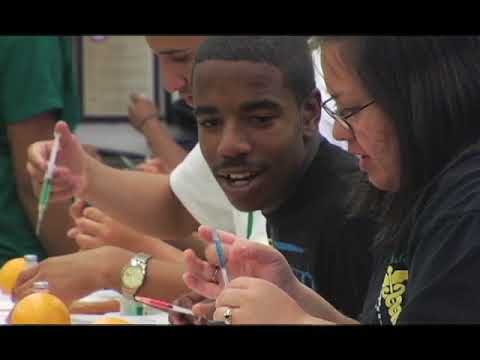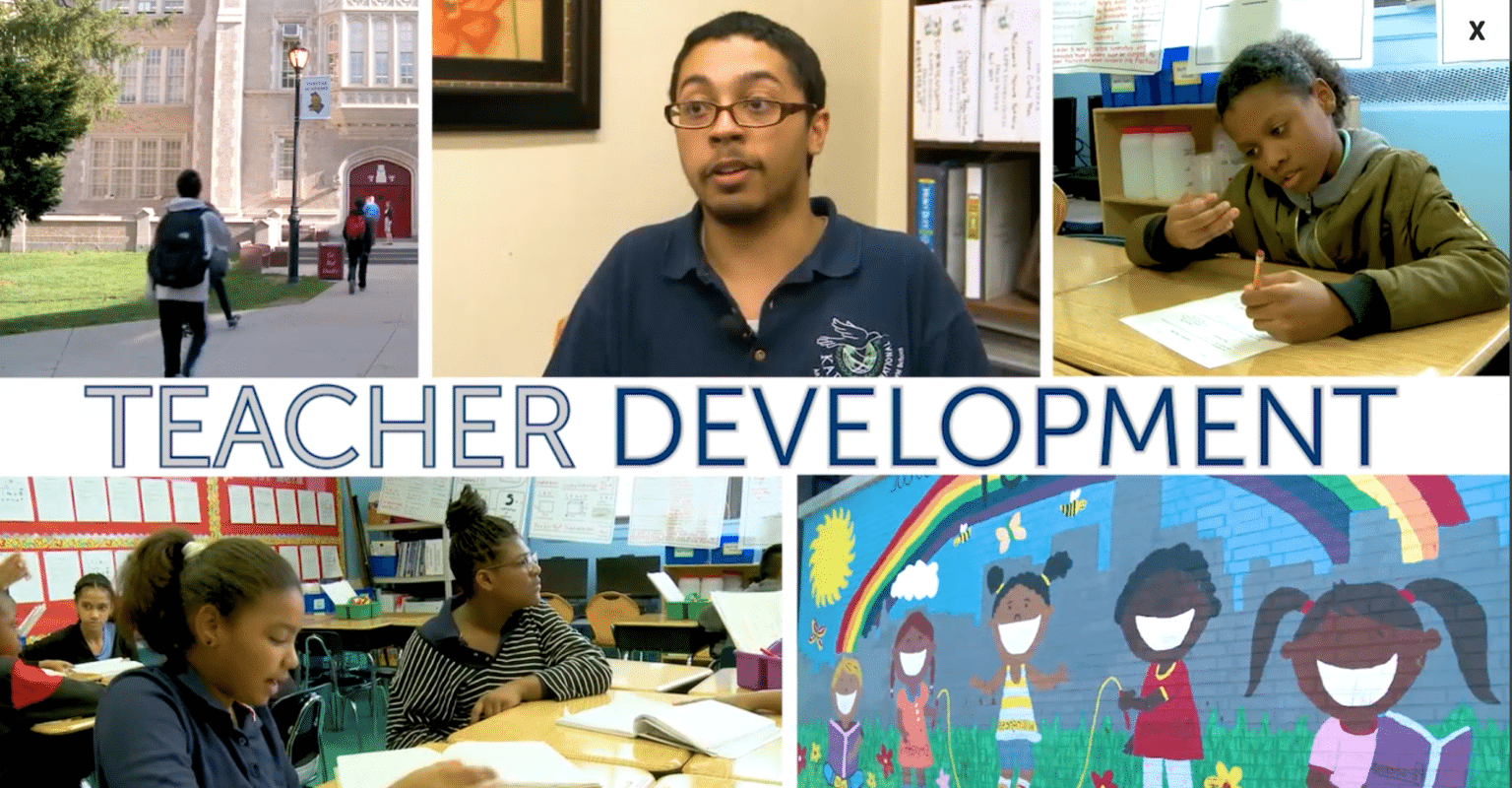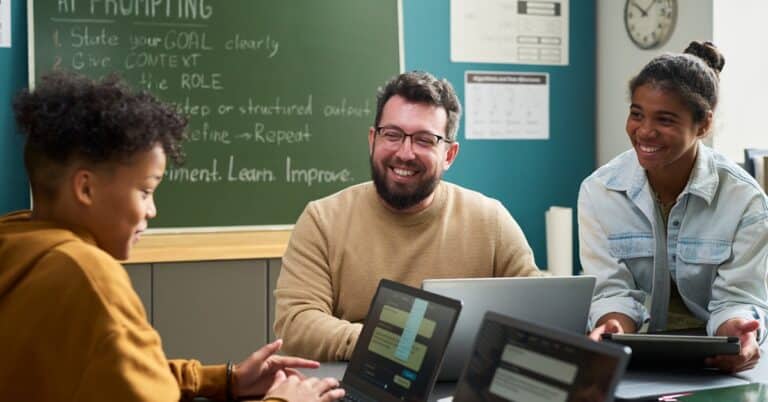By mastering the 12 foundational competencies, educators can build a solid foundation for continued growth. The competencies are a subset of those outlined in the Educator Competencies for Personalized, Learner-Centered Environments, created to empower a growing number of teachers to implement and scale up a transformation of their classrooms into places of personalized, student-centered learning. While Educator Competencies explores many areas, 12 competencies were flagged as foundational and ‘prerequisite’ to all others, including contributing to college and career access.
College and career access and success
Contribute to college and career access and success for all learners, particularly those who have been historically marginalized and/or least served by public higher education due to background, demographics, neurodiversity or culture
Teachers who contribute to college and career access:
- Support each student so that they to gain the knowledge and skills needed for postsecondary success
- Facilitate individualized career exploration and planning
- Contribute to a school-wide culture of cultural competency and commitment to equity
- Explicitly teach students how to build networks to achieve academic and career goals

Internships can be an important part of the individualized career exploration students need to be ready for success in college, career and life. In California, students rotate through a wide range of work-based learning opportunities, culminating in site-based internships. This video showcases students, teachers and industry professionals explaining the benefits of hands-on career exploration.

College and career success for all students starts with a school-wide commitment to equity. This video highlights the staff at Metropolitan Expeditionary Learning School who are working to become more culturally responsive. Teachers discuss relationship-building, curriculum changes and the need to address implicit bias. They collaborate across the school to create an inclusive environment.
Learn more about this and other competencies, as well as how to transform classrooms into places of personalized, student-centered learning, by interacting with Educator Competencies for Personalized, Learner-Centered Environments.

